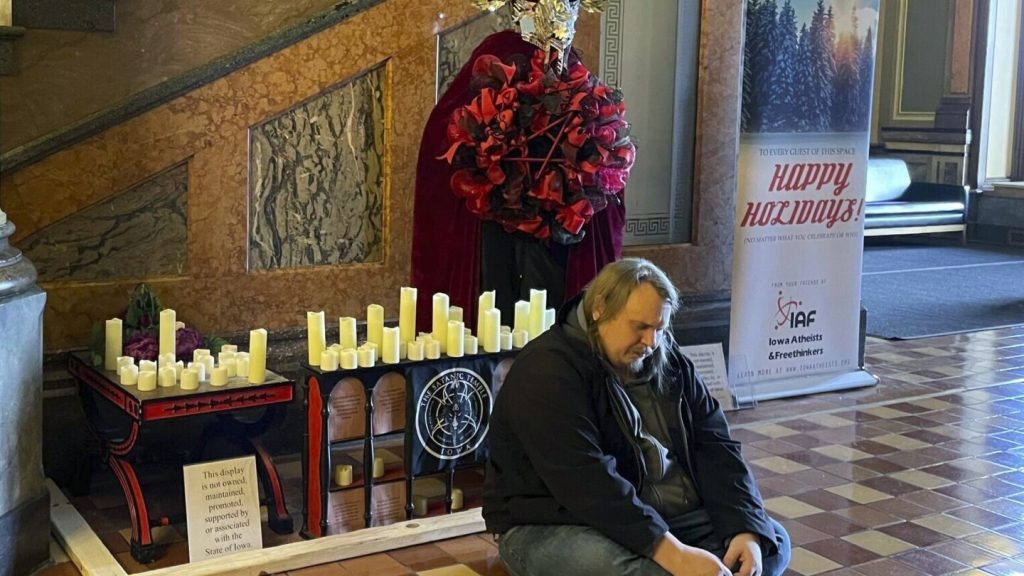Cassidy’s guilty plea follows his admission of destroying a statue of the horned deity Baphomet at Iowa’s state Capitol. Cassidy, a former congressional and legislative candidate, agreed to plead guilty to an aggravated misdemeanor count of third-degree criminal mischief in exchange for prosecutors dropping a felony hate crime charge. The statue was brought to the Capitol by the Satanic Temple of Iowa as part of religious displays allowed in the building during the holidays. The destruction of the statue drew criticism from state and national leaders, including Iowa Gov. Kim Reynolds and Florida Gov. Ron DeSantis, both Republicans.
The statue of Baphomet was reportedly destroyed beyond repair on December 14. Cassidy stated that he was outraged by the statue, which he described as blasphemous. He justified his actions by saying that his conscience is guided by the word of God and not bureaucratic decrees. Cassidy raised over $134,000 for his defense through the Christian fundraising site GiveSendGo, with supporters commending his bravery and conviction in defending what they believe to be the honor of God in a government building where lawmakers are expected to respect Jesus Christ and his teachings.
The Satanic Temple, a non-theistic religious organization founded in 2013 in Salem, Massachusetts, brought the statue to the Capitol. The group advocates for secularism and does not actually believe in Satan. It is important to note that the Satanic Temple is distinct from the Church of Satan, which has its origins in the 1960s. The plea agreement reached in Cassidy’s case includes a deferred judgment with two years of probation, an $855 civil penalty, and restitution to be determined. Cassidy may also be required to participate in a victim-offender dialogue with representatives of the Satanic Temple if requested, although the sentencing recommendation is not binding on the court.
The guilty plea entered by Cassidy’s attorney on his behalf resulted in him admitting to partially dismantling the display at the Iowa State Capitol without the proper authorization. The damage caused by Cassidy was assessed to be greater than $750, leading to the charge of third-degree criminal mischief. The plea deal allowed for the dismissal of the hate crime charge. In reaction to the plea agreement, some are likely to view Cassidy as a champion of Christian values, while others may see his actions as an attack on religious freedom and the separation of church and state. The resolution of this case has implications for how future incidents involving religious displays in government buildings are handled and the boundaries of free speech and religious expression in the public sphere.
As the legal process unfolds, it is clear that the repercussions of Cassidy’s actions will continue to resonate in the local community and beyond. The attention drawn to this case has sparked debates about the role of religion in government spaces and the rights of individuals to express their beliefs in a diverse society. The decision to drop the hate crime charge in exchange for a guilty plea to criminal mischief raises questions about the enforcement of hate crime laws and the nuances of distinguishing between protected religious expression and criminal behavior. It remains to be seen how Cassidy’s case will be remembered in the context of religious liberty, free speech, and the boundaries of acceptable conduct in the public square.


